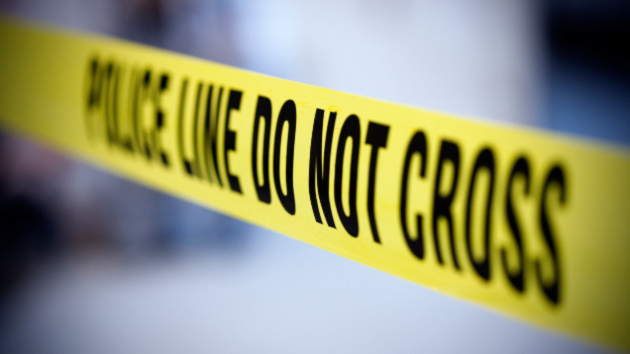Street crime units face challenges following high-profile controversies
Written by ABC Audio ALL RIGHTS RESERVED on November 7, 2023

(NEW YORK) — Law enforcement officers assigned to street crime units aim to infiltrate gangs, confiscate illegal guns and remove drugs off the streets, according to police officials and legal experts.
However, street crime units have found themselves at the forefront of controversy and many have come under scrutiny following allegations of abuse and misconduct.
Critics of such units, whose officers sometimes operate in unmarked cars and plainclothes, have said they too often fall into discriminatory and abusive practices.
Units under scrutiny
In Baton Rouge, Louisiana, the local police department’s street crime unit was accused in September of abusing their authority and injuring members of the public in a series of lawsuits alleging civil rights violations at the hands of police.
The unit was called BRAVE, an acronym for Baton Rouge Area Violence Elimination.
Complaints against the department allege beatings and strip searches of suspects at a warehouse that the street crime unit used for interrogations, which allegedly turned violent and during which police officers would allegedly turn off their body cameras.
Baton Rouge Mayor-President Sharon Weston Broome permanently closed the warehouse known as “Brave Cave” and disbanded the police department’s street crimes units amid the allegations.
Baton Rouge Police Chief Murphy Paul announced his impending resignation following the allegations and lawsuits.
“We will hold ourselves accountable,” Paul said at a City Council meeting in September. “The investigative efforts will yield accountability that will meet community expectations.”
The FBI New Orleans field office, alongside the Civil Rights Division and the U.S. Attorney’s Office for the Middle District of Louisiana, has opened an investigation into the department.
In Memphis, Tennessee, the local police department’s SCORPION unit, which stands for Street Crimes Operation to Restore Peace in Our Neighborhoods, was disbanded following a January incident involving 29-year-old Tyre Nichols, who was the victim of a brutal beating by members of the SCORPION unit.
SCORPION unit officers pulled over Nichols for alleged “reckless driving,” according to Memphis police reports. Officers could be seen beating him in body camera footage. Nichols was transported to a hospital, where he died three days later.
According to a preliminary independent autopsy commissioned by the family, Nichols suffered “extensive bleeding caused by a severe beating.”
The Memphis Police Association, the union representing the city’s police officers, told ABC News following the release of the incident’s body camera footage that it is “committed to the administration of justice and never condones the mistreatment of any citizen nor any abuse of power.”
The unit was dedicated to patrolling “high crime hotspots” — focusing on auto thefts, as well as gang-related and drug-related crimes.
The department declined ABC News’ request for comment. Five officers were criminally charged in Nichols’ death. One has entered a guilty plea to federal charges of excessive force and obstruction of Justice. Four others have each pleaded not guilty to second-degree murder and other charges.
The New York Police Department’s anti-crime unit became known for its stop-and-frisk practices, and was found to disproportionately target Black and Hispanic New Yorkers.
In 1998, the street crime unit filed more than 27,000 stop-and-frisk reports — which was the greatest number generated by any NYPD unit, according to research from the U.S. Commission on Civil Rights.
NYPD data at the time suggested “that racial profiling plays some role in the stop-and-frisk practices of the overall department,” particularly in the street crime unit, the commission research showed.
Anthony Rivera, a correction officer with the New York City Department of Correction at the time, told the commission about his encounter with the unit.
“I was also stopped by a fellow officer while picking up my daughter one day at school, by the Street Crimes Unit,” he said. “They just came out of their vehicles, about three vehicles, like cowboys from the wild, wild west, with their guns drawn. Luckily I had a shield, and my friend, my fellow officer, had his shield. But if it was a regular Latino out there, we might have been a statistic that you talk about today, our brothers being shot without probable cause, or for any reason.”
The NYPD disbanded the anti-crime unit in August 2020 in the wake of social justice protests following the killing of George Floyd by Minneapolis police officers, and was resurrected in 2022 by Mayor Eric Adams.
The department continues to operate under a court-appointed watchdog “to ensure that the NYPD engages in constitutional stops, frisks, and searches,” according to the independent monitor’s website.
“Since the time a decade ago when hundreds of thousands of stops were made a year, today stops have been reduced by 97%,” said Matthew Pontillo, the NYPD’s Chief of Risk Management in a 2022 statement about the monitor’s reports.
The statement continued, “At the same time, through intelligence led, data-driven, precision policing, the NYPD continues to make gun arrests at the highest rate in over two decades.”
The Center for Constitutional Rights, which has sued the NYPD several times for its practices, told ABC News that inadequate “supervisory review and discipline” are at the core of why anti-crime units often face such controversies.
“Anti-crime units are often given broad discretion and encouraged to be overly inclusive in stops in an effort to combat crime, but in reality these actions lead to unconstitutional behavior, including racial profiling,” Samah Mcgona Sisay, who is a staff attorney at the Center for Constitutional Rights, told ABC News.
Why street crime units remain active
Street crime units continue to be found in police departments across the country.
Former NYPD Chief of Detectives Robert Boyce told ABC News that street crime units can be helpful for tackling gang activity and drug cases if officers know a community well.
“I knew everybody and most of the people in the precinct knew me … You worked for a community, you understood it,” said Boyce of his time on a street crime unit. “If you want a citywide unit, it’s a mistake because they’re not plugged in.”
“It’s important to convey to your officers exactly what they’re going to do – robberies, guns, violence, street crime,” said Boyce. “You shouldn’t be pulling over cars, although sometimes you need to … and sometimes you have no choice.”
The Pittsfield Police Department in Massachusetts has a much smaller street crime unit than those in New York, Baton Rouge and Memphis. Pittsfield Lt. Jacob Barbour told ABC News that having a street crime unit that’s well known in their community has helped police address crime.
“We just had a homicide that was solved within 40 hours. They had the suspect arrested. We helped out a lot on that one as far as surveillance on particular houses; the guys have informants,” he told ABC News. “So frequently, that information is so valuable when we have these major cases.”
His unit has made hundreds of arrests on public offenses, including shoplifting, possession of illegal firearms, drug possession with intent to distribute, and more.
He continued, “We’re out there so often … A lot of the people that we deal with frequently we know very well, mostly on a first name basis.”
Boyce added that, in light of the potential for abuses of power, street crime units need to be heavily trained and heavily supervised to be effective.
“Unless you have a really strong supervision on this, you’re gonna have some problems,” said Boyce.
Copyright © 2023, ABC Audio. All rights reserved.
 KVSP
KVSP 




